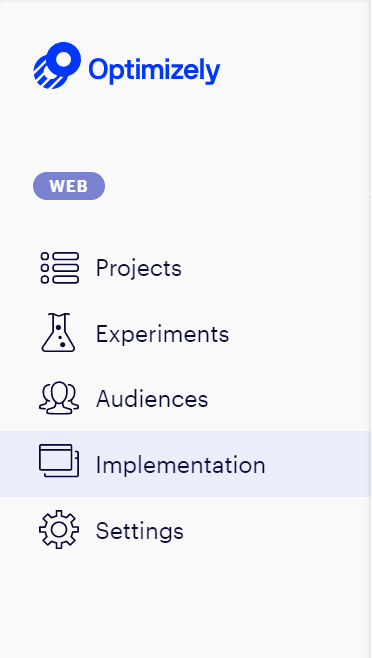Introduction to Optimizely
optimizely overview
Optimizely is an experimentation platform for CRO, and allows us to conduct A/B tests, multivariate tests and run personalization campaigns. Optimizely has its own data collection, but can be integrated with other analytics platforms (i.e. Adobe Analytics, Google Analytics, etc), and is enabled on a site via Javascript snippet - for more context, here are the developer docs.
Optimizely Terminology & scope
Project - Subsection of your Optimizely account. Each project has its own snippet, set of experiments, and set of collaborators.
Experiment - Optimizely's term for an A/B, multivariate, or multi-page test - also called a test or a campaign.
Audience - Group of visitors who share a characteristic, such as the way they came to your page or the browser they use. You target experiments based on audiences.
Pages / URL Targeting - Determining whether visitors will be included in an experiment. In Optimizely, URL Targeting determines whether an experiment will run on a certain URL
Events - The success metric by which experiments are evaluated.
Extensions - Optimizely X feature developers can use to create custom features for non-technical teams to use.
Holdback - Page without Optimizely experiment running
Variation - Alternate experience that is tested against the original (or baseline) in an A/B test.
Optimizely Experiments
Optimizely's experiments (also called a test or a campaign) allow site owners to test different designs against the baseline site design to provide further insights and understand users’ preference.
There are three main kinds of tests for Optimizely X - A/B Tests, Multivariate Tests (MVT), and Multi-Page (Funnel) Tests, where site owners can test alternate experiences (variations) against the original site (holdback) .
CUSTOM CODE
In variations, we can set custom Javascript and CSS by clicking on the custom code icon next to the URL. NOTE: Adding custom code may introduce timing issues for the experiment - see here for ways to troubleshoot.
Optimizely Audiences
Optimizely depends on audiences determine whether the experiment will run for visitors who have certain characteristics.
Audiences are a group of visitors who share a characteristic, such as the way they came to your page (i.e. sequence) or the browser they use (i.e. mobile). You target experiments based on these audiences.
Optimizely IMPLEMENTATION
Pages are configured conditions that can be utilized by multiple tests to determine whether an experiment will run. If an experiment is only to run on one page, URL Targeting can be configured within the experiment settings.
Events are metrics configured to evaluate the “success” of the experiment. Multiple experiments can reference the same event.








